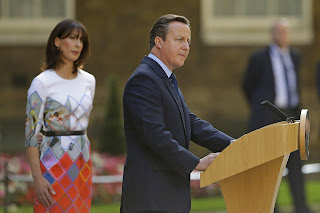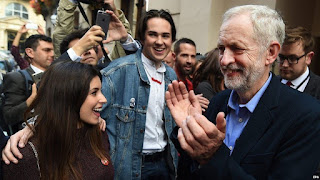The setting of Martin McDonagh's The Banshees of Inisherin is obviously meant to represent a larger canvas. Inisherin literally translates as Island of Ireland. But this may be just one of many misdirections by the writer and director who gleefully toys with the tropes of Irish history. Far from being about Ireland more generally, or the bitter falling-out of the Civil War during which the story is set (an offstage rumble, though with an oblique reference to the execution of 6 anti-Treaty men in Tuam in 1923), this is a more universal tale of a small community committed to superficial stability and social convention but sitting on a seething mass of resentment and spite. The central characters are Colm Doherty (Brendan Gleeson) and Pádraic Súilleabhaín (Colin Farrell), long-time friends whose conventions centre on trivial chat at Jonjo Devine's pub. Aware that he is getting older and believing that he has a duty to develop his talents as a musician, Colm decides to end a friendship he has come to consider an unneccesary distraction. But on a small island, you can't easily avoid other people.
Colm's solution is to tell Pádraic that he doesn't like him anymore, that he always found him dull, and that he wants no further intercourse. In plain terms, he won't speak to or acknowledge him. Pádraic, who slowly comes to appreciate that he may be the dimmest bulb on the island - the local soft lad, Dominic Kearney (Barry Keoghan) confuses him by using French words - can neither comprehend nor accept this rejection. His sister, Siobahán (Kerry Condon), urges him to move on, but he cannot. The setting for a Greek tragedy in the style of J M Synge is complete. Colm is solipisitic enough to believe that he can publicly admit this devastating truth and imagine that everything else will remain the same, but what he doesn't appreciate is that this act ripples outwards as it erodes the social glue of politeness and rubbing along, prompting first Siobahán to admit the truth (that her brother is dull if nice, that all the men are "feckin' boring") and then leave for the mainland, and then Dominic to commit suicide as he can see no future beyond the violent beatings of his policeman father and his own emotional and sexual frustration.
There are anachronisms aplenty and many parodies of Irish culture, particularly as seen through the eyes of nineteenth century English writers: the animals in the cabin, the brother and sister in their 40s sharing a bedroom, the brutal policeman - more RIC than Garda - who doesn't have to fear popular justice or the IRA. One oddity is the idea that a small island would have a permanent police presence but that the priest would only visit on Sundays. The reality would have been the other way around. What I think McDonagh is doing here is emphasising that toxic men, represented by the policeman, Peadar Kearney (Gary Lydon), are the problem. Not only is he a domestic abuser, routinely beating his son Dominic, but he displays a callous indifference to others, whether they be condemned IRA men or Pádraic and his sister. The repressive social conservatism of the Catholic Church, though promoted by men, was associated in Ireland with the feminine: Mariolatry, the Magdalene laundries etc. It is consequently held mostly off-stage in McDonagh's script or played for laughs in the postmistress's snooping.
When Peadar assaults him, Pádraic doesn't fight back, in effect adopting the feminine role, much as Dominic routinely does. Colm, witnessing the scene, wordlessly helps Pádraic to his feet and helps drive the horse and trap back to the Súilleabhaín home. The silence is as much about their shared shame as the newly-established rules of their small society. Colm will later punch Peadar, but this is literally knockabout comedy rather than intrinsic to the plot. Likewise, the scene in which Pádraic and Dominic filch a bottle of poteen from the Kearney house while the father sits drunkenly comatose and nude is an opportunity for the son to comment on Peader's "small brown cock", which is less a critique of toxic masculinity than an example of how it is internalised by boys as a style of rebellion against authority. The one character that rejects these male rules and assertively stands up for herself is Siobahán. She is a symbol of modernity, with her modern clothes and collection of books, though her manner and spiky language are anachronistic.But this toying with Irish literary culture shouldn't distract from a central narrative device that comes from the traditions of the big screen. Whereas the relationship of Gleeson and Farrell in McDonagh's earlier In Bruges was the classic odd couple familiar from buddy movies - of the older, wiser head and the impetuous youth - in The Banshees of Inisherin it is more obviously the comedy double act that provides the inspiration. The template might appear to be that of Laurel and Hardy: the fat fella with the delusions of grandeur and the thin fella as dim and innocent as the day is long (the pair famously inspired Samuel Beckett and in turn Harold Pinter, whose influence in McDonagh's plays is clear). But I think another, more recent inspiration might be Harry Enfield and Kathy Burke's creations, Kevin and Perry. The defining characteristic of Colm is not his overweening ambition (he is clearly a talented fiddle-player and composer) but his stroppy, teenager-like reaction to not getting his way. And the defining trait of all great comedy double-acts is frustration.
Frustration is the leitmotif that colours all of the main characters. Pádraic is frustrated by Colm's rejection and his own inability to mend the breach. Colm is frustrated in his attempts to devote himself to his music. Dominic is frustrated in his attempts to establish any sort of a meaningful relationship with a woman. Siobahán's seething anger is a study in frustration and petty indignities, from Pádraic's animals invading her home to the postmistress steaming open her letters. Where she differs from the men is that her attempts to have a richer, more meaningful life will ultimately be realised by leaving the island. Colm's parallel attempt to mature is thwarted by his inability to follow the logic of his own analysis, both in the realisation that he is being held back by his community and his cynical appreciation of the Church's role in maintaining it. His "despair" articulates this frustration, while his self-harm shows how it curdles into mindless violence: a obvious metaphor of the Civil War but more profoundly a comment on his own cowardice. He cannot take the route followed by Siobahán. He is trapped in a damaging relationship, but it is with Inisherin, not with Pádraic.
The two main characters are emotionally still children, hence Pádraic's innocent sleeping arrangements and his love of his donkey, Jenny, and Colm's self-indulgence and emotional blackmail. When Pádraic reports Colm's decision to Dominic the younger man tartly responds, "What is he, twelve?" And that's the truth of it. Colm is barely adolescent and Pádraic is a man whose moral and emotional development - his desire to be "nice" - appears to have stopped at the age of eight. This might be a case of McDonagh pointing up the immaturity of the Free State, but I'm inclined to believe that the larger canvas he is working on is that of masculinity and in particular the more extreme, self-pitying anti-feminism exhibited by the likes of Jordan Peterson and the Men Going Their Own Way movement. Colm's self-harm shows the absurdity of separatism; Pádraic shows himself to be easily-led by Dominic's foolish advice and willing to escalate from resentment to arson; while Dominic's death condemns both his father's violence and his own inability to mature and break away. That we can feel sympathy for all three characters is a testament both to the acting and the writing. A fine, sly film about men behaving badly.








